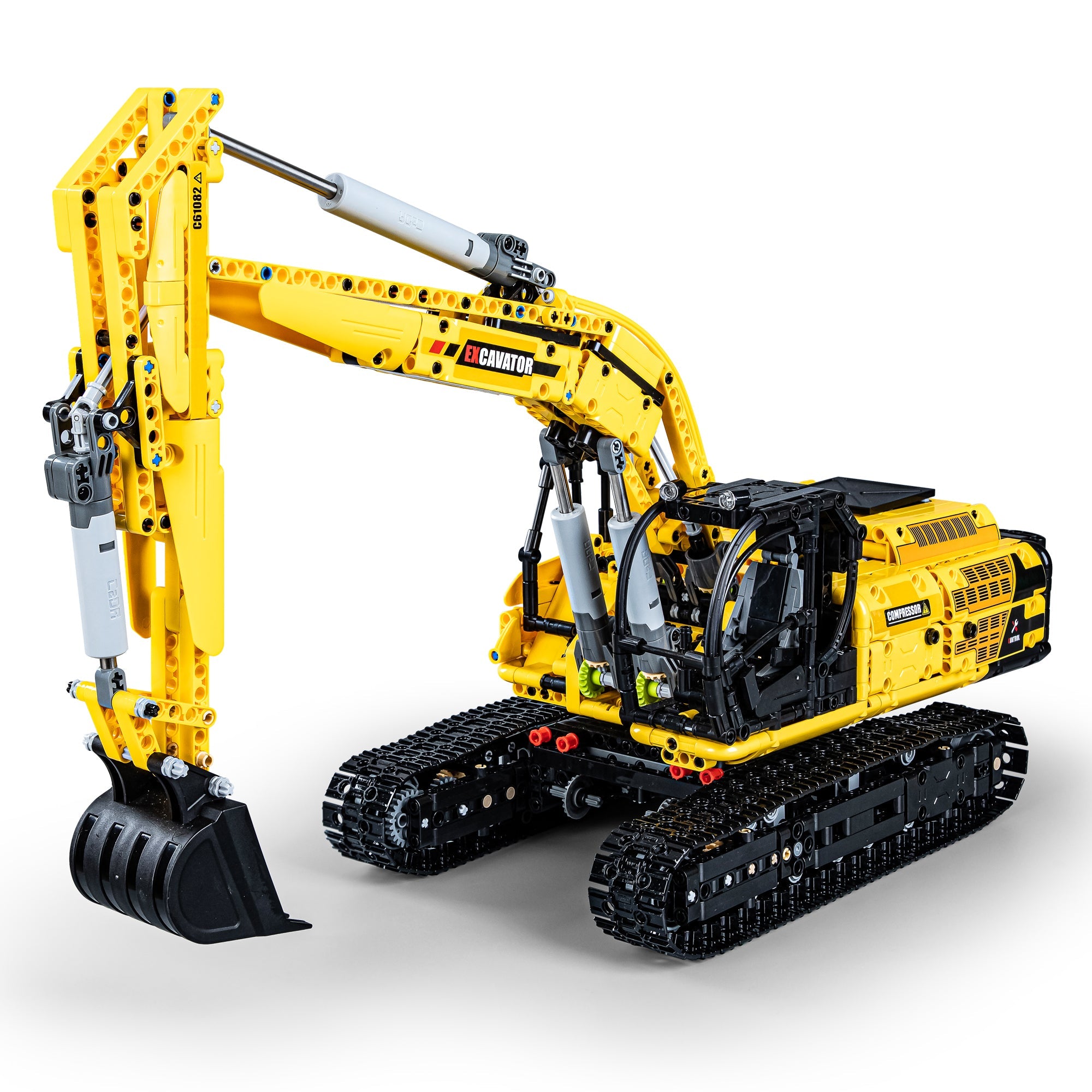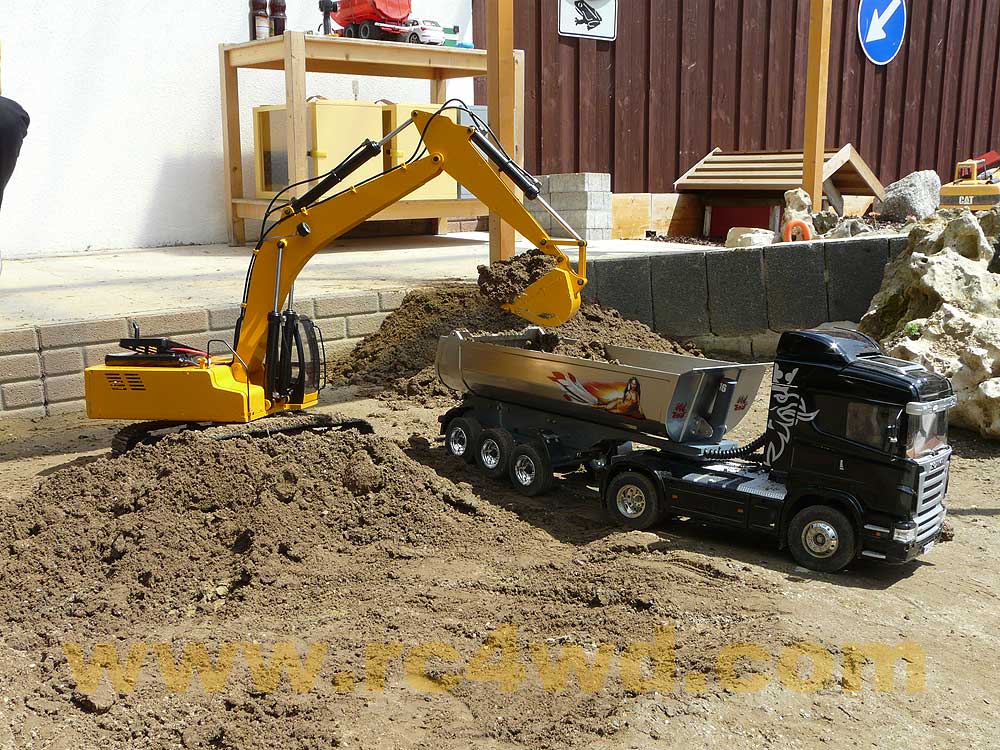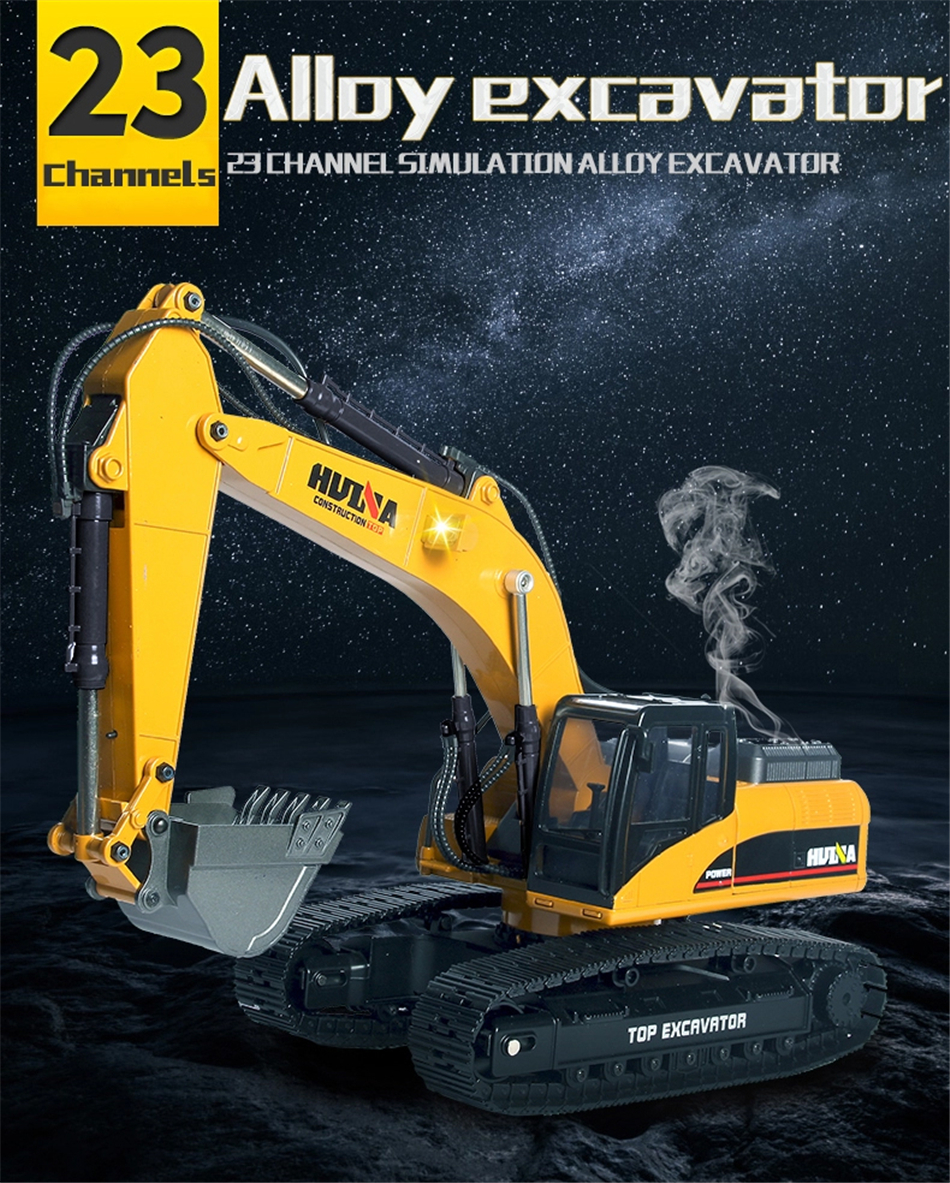Comprehending How Excavator Functions and Its Effect On Performance
Excavators play a crucial function in construction and mining procedures, relying on a complex interaction of hydraulic and mechanical systems. Their capacity to do a range of tasks rests on both their layout and the innovation incorporated within. Comprehending these elements can greatly impact functional effectiveness and productivity. As advancements proceed to improve the market, one should consider just how these modifications will influence future methods and efficiency.
The Basics of Excavator Mechanics

The Duty of Hydraulic Equipments in Excavators
At the heart of excavator procedure lies the hydraulic system, which plays a critical function in powering the maker's features and activities. This system makes use of pressurized hydraulic liquid to move power, making it possible for numerous actions such as lifting, digging, and moving. By using the principles of hydraulics, excavators can carry out jobs with impressive precision and force, boosting overall operational efficiency.The hydraulic system includes vital components, including pumps, cylinders, and shutoffs, which collaborate to manage the circulation and instructions of the liquid. When the driver engages the controls, the hydraulic fluid is directed to particular cylinders, equating the operator's commands into physical motion. This device enables receptive and smooth activities, which are crucial in construction and excavation environments. double e volvo rc excavator. The performance of the hydraulic system directly affects the efficiency and flexibility of the excavator, making it a vital aspect in contemporary excavation procedures
Key Parts of an Excavator
Understanding the crucial components of an excavator is important for grasping just how this powerful equipment operates. An excavator consists of numerous considerable components, including the undercarriage, home, container, boom, and arm. The undercarriage supplies stability and movement, commonly including tracks or wheels to browse various surfaces. Your house includes the engine and hydraulic systems, allowing the driver to regulate motion and power the equipment. The boom expands from the house, allowing vertical reach, while the arm attaches to the bucket, assisting in digging and lifting operations.Additionally, the taxicab houses the operator, furnished with controls for exact handling. Each of these components plays a crucial role in the excavator's total performance, adding to its effectiveness and efficiency on building sites. Recognizing these parts aids in maintaining and enhancing excavator efficiency, guaranteeing jobs are completed securely and properly.
Accessory Adaptability and Its Advantages
Accessory convenience is a necessary aspect of excavators, making it possible for drivers to switch between different devices tailored for particular tasks. This versatility not just boosts job performance but also adds to cost-effectiveness by decreasing the requirement for numerous makers. Comprehending the various sorts of attachments offered can considerably influence the total performance and functionality of an excavator on task sites.
Kinds of Add-ons
While excavators are largely recognized for their digging capabilities, their true flexibility hinges on the vast selection of add-ons available. These attachments enhance the excavator's functionality, permitting it to do various jobs past excavation. Typical attachments include containers (for excavating and scooping), hydraulic thumbs (for realizing materials), and augers (for drilling holes) Grapples are made use of for managing and moving particles, while rippers can separate hard surface areas. Other specialized add-ons, such as trenchers and rakes, make it possible for excavators to adjust to certain work needs. This diversity not just enhances the equipment's energy across various markets, including building, demolition, and landscape design, but likewise allows operators to customize their equipment to meet specific job needs effectively.
Increased Task Efficiency
Taking full advantage of job performance is a main benefit of using various excavator accessories. Different add-ons enable an excavator to perform numerous tasks without requiring to switch tools, saving important time and labor. For example, utilizing a hydraulic hammer can damage concrete while a bucket accessory can excavate dirt, enabling a seamless workflow. This adaptability lowers downtime related to tools changes and improves performance on-site. Additionally, specialized accessories boost precision in tasks such as grading or landscape design, leading to greater quality results. The capability to adjust to various task needs not just improves operations however additionally decreases the demand for added equipment, guaranteeing that jobs are finished quickly and successfully. Overall, add-on adaptability significantly adds to boosted work performance in excavation job.
Cost-Effectiveness and Adaptability
Cost-effectiveness is a considerable benefit of using versatile excavator attachments. These add-ons enable a solitary excavator to do multiple tasks, lowering the demand for additional equipment and labor - double e volvo rc excavator. By changing between containers, hammers, and grapples, operators can take on various tasks, from excavating to demolition, thereby taking full advantage of devices application. This adaptability not just reduces functional costs but also minimizes downtime related to transforming devices. Additionally, the capacity to tailor excavators with specialized add-ons improves productivity, as they can efficiently manage diverse jobs according to job demands. In conclusion, the mix of cost-effectiveness and flexibility in excavator add-ons adds to improved functional efficiency and source allowance in building and excavation tasks

Advanced Modern Technology in Modern Excavators
Modern excavators are progressively furnished with sophisticated innovation that transforms excavation procedures. Automation enhances operations, while boosted fuel efficiency reduces functional expenses. Additionally, clever control systems enhance precision and safety and security, noting a significant evolution in excavation tools.
Automation in Excavation Processes
As excavation innovation evolves, automation has actually emerged as an essential element in enhancing performance and precision on work websites. Modern excavators are furnished with advanced automated systems that promote tasks such as grading, excavating, and trenching with marginal operator intervention. These systems make use of sensors, GPS, and machine understanding algorithms to assure accurate placing and deepness control, greatly reducing the margin for mistake. Additionally, automation allows operators to concentrate on tactical decision-making instead of manual controls, bring about boosted productivity generally. Such innovations not only improve workflows however additionally enhance security by minimizing human error in complicated procedures. The combination of automation in excavation procedures represents a substantial advancement in construction technology, driving the sector towards higher performance and effectiveness.
Enhanced Gas Effectiveness
Improvements in modern technology have actually likewise caused substantial improvements in fuel efficiency for contemporary excavators. Modern machines are outfitted with innovative engines that maximize power outcome while lowering gas consumption. These engines make use of cutting-edge burning modern technologies, such as turbocharging and straight gas injection, to boost efficiency and efficiency. Furthermore, lightweight materials in building decrease overall weight, enabling much less power expense during procedure. The intro of variable rate controls makes it possible for operators to adjust engine efficiency according to certain tasks, even more minimizing gas usage. As a result, these enhancements not just lower operational prices yet likewise add to ecological sustainability by minimizing discharges. In general, enhanced fuel performance in excavators is an essential growth that boosts productivity and financial feasibility in the building industry.
Smart Control Solution
While operators navigate significantly complicated work sites, wise control systems in excavators have become necessary tools for boosting effectiveness and accuracy. These sophisticated technologies use formulas and sensors to check different criteria such as tons weight, surface problems, and operational efficiency. By automatically changing hydraulic functions, clever systems optimize machine efficiency, bring about boosted productivity and lowered wear on elements. In addition, operators benefit from user-friendly user interfaces that offer real-time responses and diagnostics, permitting educated decision-making. This integration of modern technology not just simplifies operations yet also lessens human mistake, adding to much safer workplace. As the building sector remains to develop, clever control systems will play a crucial duty in forming the future of excavator performance and effectiveness.
Enhancing Operational Effectiveness With Excavators
Excavators play an important function in improving functional efficiency across numerous building and construction and excavation tasks. Their versatility enables for several jobs, consisting of product, digging, and training handling, which enhances process and lowers the need for extra equipment. With effective hydraulic systems, excavators can do heavy-duty tasks with accuracy, significantly reducing the time called for to complete why not try this out tasks. The assimilation of advanced technology, such as GPS and automated controls, better enhances their operation, enabling drivers to attain better precision and minimize product waste. In addition, contemporary excavators are developed to consume less gas and see post lessen discharges, contributing to both price financial savings and environmental sustainability. By making use of excavators properly, building and construction teams can boost efficiency, meet task due dates, and improve general website management. This multifunctionality and performance make excavators vital tools in the modern building and construction landscape.
The Future of Excavators in Building and Mining Industries
As the construction and mining sectors evolve, the future of excavators is positioned for significant makeover driven by technical development and altering operational needs. Advancements in automation and fabricated intelligence are improving excavator capabilities, permitting enhanced precision and performance in operations. Self-governing excavators are arising, decreasing the demand for human intervention and lessening the threat of accidents.Moreover, the integration of telematics and IoT modern technology enables real-time tracking of machine efficiency and anticipating upkeep, maximizing uptime. Green designs, including hybrid and electrical models, are getting grip, aligning with sustainability goals within the industry.Additionally, using innovative materials and lighter styles improves gas performance while preserving efficiency requirements. As these patterns development, excavators will play a crucial duty in meeting the boosting needs for performance and security in building and construction and mining, eventually changing operational landscapes.
Frequently Asked Concerns
How Do Weather Condition Problems Influence Excavator Efficiency?

Climate condition significantly influence excavator performance, as rain and mud can impede grip and stability, while extreme temperatures may influence hydraulic systems. Operators needs to adjust to these variables to guarantee optimal capability and safety and security throughout procedures.
What Precaution Should Operators Follow While Making Use Of Excavators?
Safety procedures for excavator drivers include wearing appropriate personal protective devices, performing pre-operation assessments, guaranteeing appropriate communication with ground employees, maintaining a risk-free distance from above risks, and adhering to recognized functional protocols to stop mishaps.
Exactly How Commonly Should Excavators Be Maintained for Optimal Efficiency?
Excavators ought to be kept routinely to assure peak performance, commonly every 250 operating hours or as defined by the producer. Regular checks boost dependability, avoid unforeseen breakdowns, and extend the life-span of the devices.
What Is the Ordinary Lifespan of an Excavator?
The average life expectancy of an excavator usually ranges from 10,000 to 15,000 hours of procedure. Factors influencing durability consist of maintenance practices, operating problems, and the quality of the equipment itself, influencing general performance and performance.

Can Excavators Run on Irregular Terrain Successfully?
Excavators can run effectively on uneven terrain as a result of their expressed designs and adjustable tracks. These functions allow them to preserve security and traction, allowing reliable procedure in challenging environments frequently experienced in building and landscape design projects. Each of these elements plays an essential role in the excavator's total capability, adding to its efficiency and effectiveness on construction sites. Maximizing job efficiency is a primary advantage of using different excavator attachments. While operators navigate progressively complicated job websites, smart control systems in excavators have actually emerged as vital tools for enhancing performance and accuracy. Excavators play an essential role in improving operational efficiency view it now across numerous construction and excavation tasks. Advancements in automation and artificial knowledge are reshaping excavator capabilities, permitting for boosted accuracy and performance in procedures.